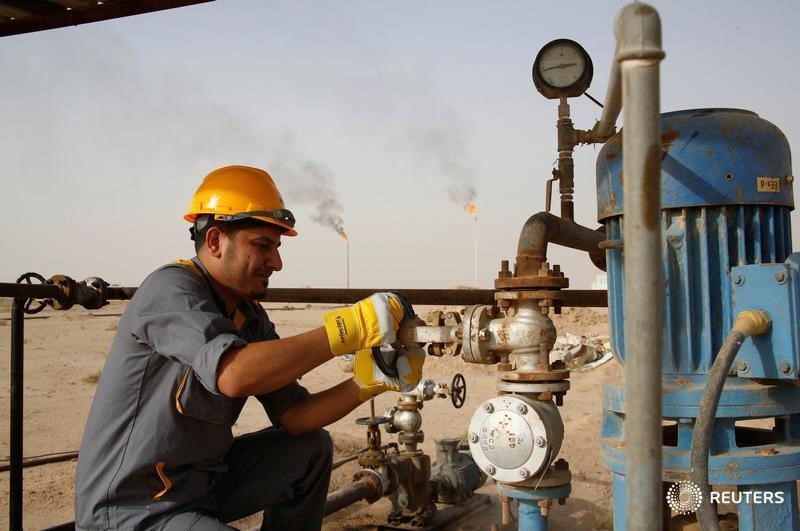Investing.com – The Brexit cliffhanger and global economic worries drove investors from oil on Monday, sending crude prices down almost 1% to extend the previous week’s tumble.
Retaliatory sanctions of $2.4 billion sought by China for U.S. non-compliance with a WTO ruling from an Obama-era tariffs case also raised concerns about the fragile trade negotiations between the two superpowers.
U.S. West Texas Intermediate crude settled down 47 cents, or 0.8%, at $53.31 per barrel.
U.K. Brent oil also finished down 47 cents, or 0.9%, at $58.94.
Both benchmarks lost almost 2% last week.
“Traders are still betting on slowing global growth and are convinced that this will lead to an oversupply of oil,” said Phil Flynn, senior energy analyst at the Price Futures Group brokerage in Chicago. “Traders are also fixated on the Brexit soap opera … wondering whether they would stay or go.”
In the U.K., Prime Minister Boris Johnson’s plan to lead Britain out of the European Union at the end of this month hit another roadblock when the speaker of the House of Commons rejected his attempt to hold a new vote of lawmakers on his Brexit deal.
At the WTO, a document published on Monday showed the world trade body’s appeals judges ruled in July that the United States did not fully comply with an Obama-era WTO ruling. That could open Washington to Chinese sanctions if it does not remove certain U.S. tariffs that break the watchdog’s rules.
The WTO news comes as U.S. China have been moving gingerly to resolve a trade war that has dragged on almost two years and resulted in hundreds of billions of dollars of tit-for-tat tariffs.
U.S. tariffs on China due in December might be halted if the first phase of trade talks between the two sides go well, White House economic adviser Larry Kudlow told Fox Business Monday.
President Donald Trump announced earlier this month that he had agreed in principle to a “phase one” trade deal with China’s Vice Premier Liu He after high-level negotiations between the two sides in Washington.
Trump said the deal includes China agreeing to raise its U.S. agricultural purchases to between $40 billion and $50 billion from $8 billion to $16 billion, in addition to making reforms on intellectual property and financial services.
Liu, speaking on Saturday in his first comments since last week’s meeting with Trump, said the two countries made “concrete progress” in many areas, but stressed that negotiations must be on an equal basis, the South China Morning Post reported.
